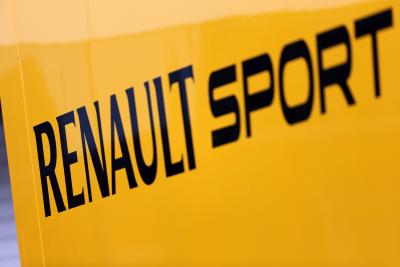Kate Walker: Melting the glacier
Over the run-up to the Singapore Grand Prix weekend and over the course of the weekend itself, talking of unfreezing the engines for 2015 - allowing Ferrari and RenaultSportF1 to play catch-up against the might of Mercedes, in effect - gathered apace.
If the FIA goes ahead with allowing the engine manufacturers to spend the next year or more tweaking their engines with a view to improving the show, they will be making a travesty of the sport, and of the very point of having technical regulations in the first place, for two very simple reasons.
First and foremost, it is not sporting to change the rules to accommodate poor performance. And that is exactly what would be happening were the unfreeze to go ahead. Neither Ferrari nor RenaultSportF1 have done a particularly bad job in developing their 2014 power units, but Mercedes did a better job. In a sport where the technology is as much a part of the competition as the human element, to allow Maranello and Viry-Chatillon to undo their mistakes is to punish Brixworth as a consequence.
For the rules governing revisions to the 2014 power units do allow for a certain amount of modification over the years, with each part of the power unit given a points status. Teams are allowed to "spend" a decreasing number of points from year to year, giving them the opportunity to make small changes with a view to improving their engines without allowing them to make radical overhauls from year to year.
Looked at as a percentage, eight percent of the power unit's total weight in components was to have been frozen in 2015, increasing to 23 percent in 2016 and capping out at 95 percent by 2019. It may not be much in terms of wiggle-room, but the existing rules do give the engine manufacturers a little bit of breathing room.
And the reasons for these strictures? Simply put, cost control. Which is the second reason that unfreezing the engine development regulations for 2015 would be a travesty. Costs in Formula One are spiralling out of control, and four of our eleven teams are currently so imperilled that the spectre of three-car teams is looking increasingly ominous.
Speaking to the media on Friday in Singapore a number of the engine customer teams were keen to see their suppliers upgrade the power units if it were allowed, but all were wary of the increased costs likely to lead from such developments.
"We do support the idea that development of an engine is allowed within certain given parameters but it not necessarily leads to the fact that we, as customers, should actually bear the costs for that," Sauber's Monisha Kaltenborn said. "Because that's something that is always taken for granted, that the moment we talk about engine development it's just a logical step next to say 'it'll get more expensive'. As a customer we say 'why should it?' because actually the supplier is doing it first of all for his own team. Not for us. We are benefitting from it, of course. We are also paying a lot for the engines. Yes, we as a customer, support that - within the parameters. But we should be getting the same spec at the same cost."
Vijay Mallya, Franz Tost, Eric Boullier, and Manfredi Ravetto all said much the same, with only Claire Williams providing a minor note of dissent - although the Williams deputy team principal was in accord with her colleagues on the notion of cost control.
"I look back over history in Formula One when we have these kinds of conversations and, you have to enter the season with your race car and, if you haven't done a good enough job, then why change the regulations?," she asked. "Why should teams be allowed to do that? However, if it is part of the conversation, then fine, we'll be involved in that conversation and we'll support it - but only based around what Monisha has already said: as a supplied team, we don't believe those costs should be passed on to us.
"If the manufacturers want to spend that money developing their engines, then fine - but as a customer team we want to receive the same specification that the manufacturers provide, and at the same cost that we have now," Williams continued. "The cost of changing to this year's spec engine have been considerable. We're paying about ?20 million for our engine in a period when we're trying to control costs in Formula One. We're now looking at a period where engine development costs are going to increase significantly - and I'm not sure that's the conversation this sport should be having."
By Kate Walker
Kate Walker is a senior F1 writer for Crash.net. A member of the F1 travelling circus since 2010, she keeps an eye on the behind the scenes wheeling and dealing that makes Formula One a political melodrama.


![Johann Zarco, LCR, Honda RC213V, 2024 San Marino MotoGP, Misano, action [Gold & Goose]](https://cdn.crash.net/styles/thumbnail/s3/2024-09/GnG_1166323_HiRes.jpg?itok=vpgrU7Q4)

![Jack Miller, KTM Factory Racing, KTM RC16, San Marino MotoGP, Misano, action [Gold & Goose]](https://cdn.crash.net/styles/thumbnail/s3/2024-09/GnG_1167624_HiRes.jpg?itok=iz7mA4EQ)


![Fabio Quartararo, Monster Energy Yamaha Racing, Yamaha M1, 2024 MotoGP, Misano Test, action [Gold & Goose]](https://cdn.crash.net/styles/thumbnail/s3/2024-09/GnG_1168928_HiRes.jpg?itok=fcYSole_)
![Toprak Razgatlioglu, ROKiT BMW Motorrad, BMW M 1000 RR, Magny-Cours, WorldSBK [Gold & Goose]](https://cdn.crash.net/styles/thumbnail/s3/2024-09/GnG_1165133_HiRes.jpg?itok=GD5SVNVG)

